Math in Everyday Life: How to See the World Through Numbers
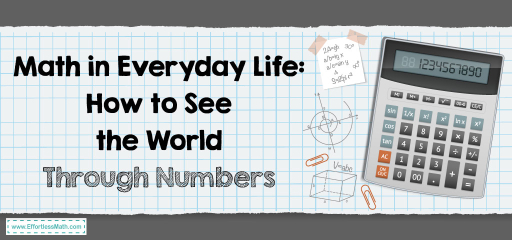
Are you one of those people who always thought Why are we even learning math, and what does it have to do with our life? It’s time that you understood how it actually helps us in our everyday lives.
Math is all around you in everything you do. It starts when you wake up and goes on until you fall back asleep. Just think about it, whenever you make your monthly budget or calculate a discount, you’re simply using math.
Even simple tasks such as measuring ingredients while cooking involve simple mathematical calculations. With its help, you can stay organized and make smarter choices without even thinking that you’re using it.
Why Math Matters in Everyday Life
Math is everywhere, and it’s used more than you realize. It’s not just something you learn in school, it’s a tool with which you can solve problems every single day of your life.
First, math helps you stay in line. When you create a budget or plan your schedule, you use numbers to manage your time and money. Without math, it would be really hard to know how much you are spending or how much free time you have.
Math also makes problem-solving easier. For instance, if you are shopping and see a 25% off sale, math helps you figure out how much you will save on the actual price. It’s also helpful when you need to divide something evenly, like cutting a pizza for your family.
Even modern technology and finance require some knowledge of math. For example, if you run a business, you might decide to accept Tether payments to offer your customers an additional payment method. With this platform, you can accept USDT from anywhere in the world with ease.
You’ll find math in the most unexpected of places if you look closely. You use numbers when you check what the weather is going to be in the next few days, and even when trying to keep up with the score your favorite team is scoring. There’s no going back after knowing math is half of our daily life.
8 Places Where Math is Used
You might be surprised to know how often numbers show up in your daily routine. Some examples include:
1. Grocery Shopping
When you shop for groceries, math helps you compare prices between different brands and package sizes to find the best possible deal. For instance, you might calculate if buying a larger box is cheaper per unit than a smaller one.
For discounts, you also need math, like figuring out how much a 20% off sale will save you. Even keeping track of your total while filling your cart helps to stay within your budget.
2. Managing Money and Budgets
Math plays a big role in handling personal finances. You use it to plan how much you spend each month on essentials like food, rent, and utilities. It also helps with saving by dividing your income between savings and expenses.
If you have debts or loans, you need math to calculate how much interest you’re paying or how long it will take to repay them. This was, you know, that you’re spending under a specific budget.
3. Cooking and Baking
This simple subject is even used in the kitchen to follow recipes. Like, if a recipe is meant for four people but there are six of you, you’ll have to adjust the ingredients, and for that, you need to know how to multiply.

Fractions are also common mathematical portions that are used in cooking, like half a cup or one-third of a teaspoon. Even when using a timer for baking, you are relying on numbers to know when the dish will be ready.
4. Paying Bills and Taxes
Whether it’s utility bills, credit cards, or rent, you can use math to help you calculate exactly what you owe and track when bills are due. Even if you’re splitting bills with your roommates, you’ll need to divide the costs in equal parts.
Taxes also require knowledge of mathematics to determine what percentage of your income goes toward taxes and how much you might get back as a refund. This way, you can avoid tax surprises.
5. Tracking Fitness Goals
Staying fit also involves tracking numbers such as the calories you consume or the steps you walk daily. You also use math to measure how much you’re progression, like reducing body weight by a certain percentage or running a faster mile.

Fitness apps use math to calculate your averages and provide insights into how you can improve your performance over time.
6. Home Repairs and Projects
If you’ve ever worked on a home project, you must know how important measurements are. Whether you’re installing shelves, painting walls, or assembling furniture, math ensures that everything fits perfectly.
Take, for example, with it you can calculate the amount of paint based on the area of your walls or measure wood pieces to cut them accurately. This way, you can save a lot of time, money, and even unnecessary trips to the hardware store.
7. Handling Digital Payments
Math also comes in handy with online payments and digital currencies. In it, you need math to calculate exchange rates, keep track of payments, and manage fees. By handling digital transitions, you can stay on top of your business finances with ease.
8. Games and Sports
Numbers are a big part of the sports and games we play every day. Players use math to keep score, track performance, and analyze statistics. For instance, basketball teams calculate shooting percentages while soccer players analyze how often they win possession.
Apart from that, in board games or video games, math helps develop critical strategies. Knowing the numbers helps players and coaches make better decisions to improve their chances of winning.
Summing Up
Math makes everything easier and simpler. You’ll see that mathematical concepts are used everywhere we go if we start looking hard enough. So, just sometimes, stop for a while and think about all the things that might be using math. And without math, they might not be possible.
Related to This Article
More math articles
- How to Prepare for the 8th Grade STAAR Math Test?
- 4th Grade Common Core Math Practice Test Questions
- Word Problems Involving Writing a Ratio
- 5th Grade CMAS Math Worksheets: FREE & Printable
- What Skills Do I Need for the TASC Math Test?
- Linear, Quadratic, and Exponential Models
- Full-Length 7th Grade IAR Math Practice Test
- 6th Grade GMAS Math Worksheets: FREE & Printable
- Top 10 DAT Quantitative Reasoning Practice Questions
- How to Use Right-Triangle Trigonometry


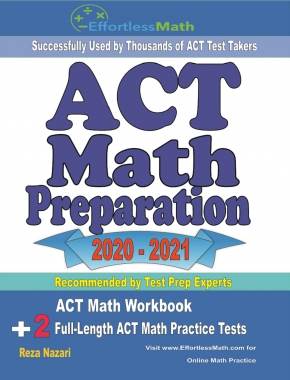

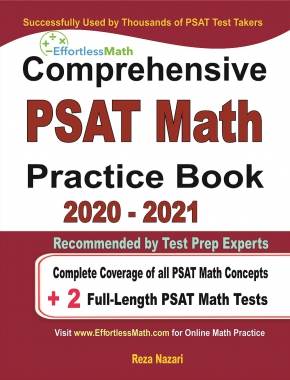
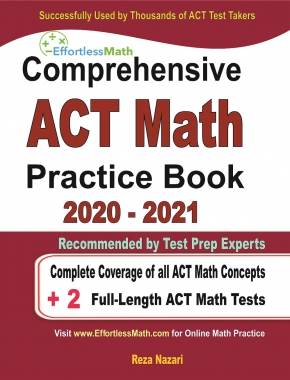
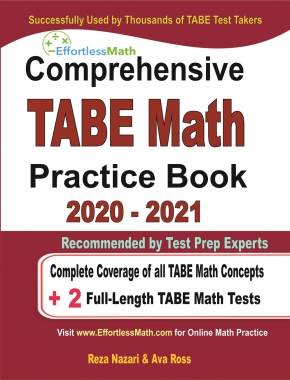
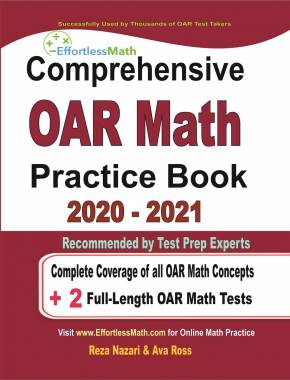
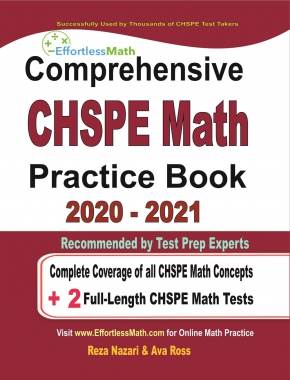
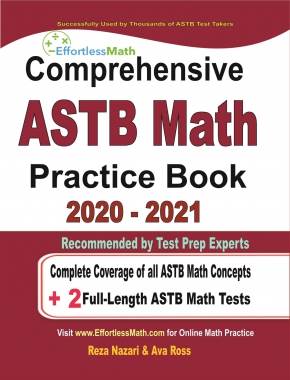
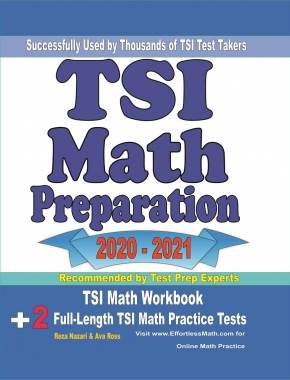
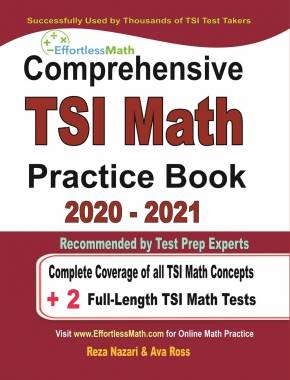

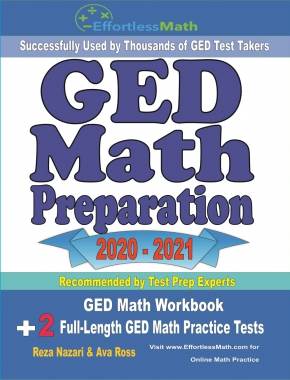
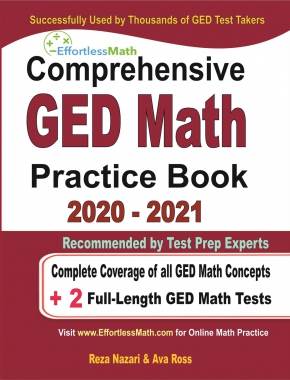

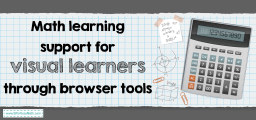
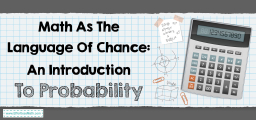
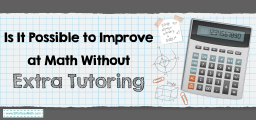
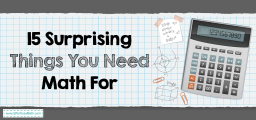
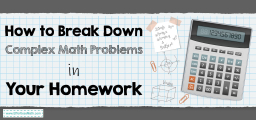
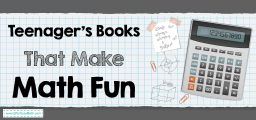
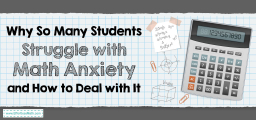
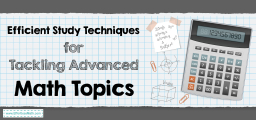
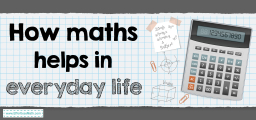
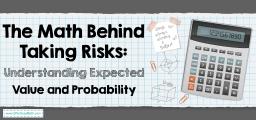
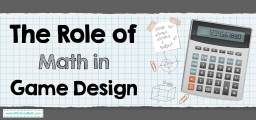
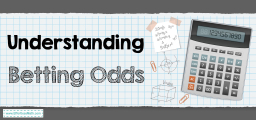

What people say about "Math in Everyday Life: How to See the World Through Numbers - Effortless Math: We Help Students Learn to LOVE Mathematics"?
No one replied yet.